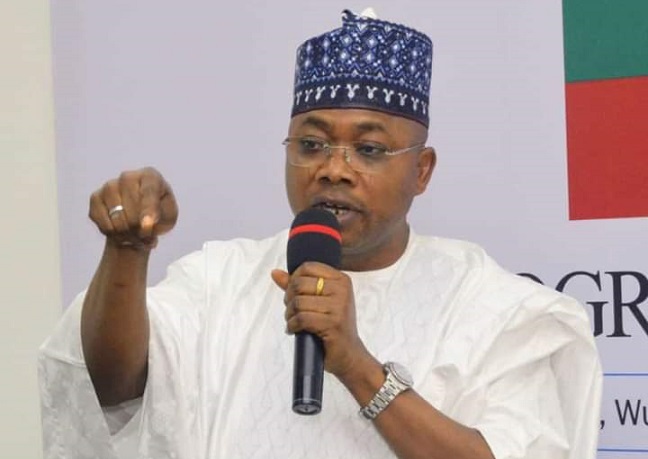The government of Kogi State is seeking inclusion in Nigeria’s 13% derivation fund, granted to oil-producing states. With recent declarations of its oil-producing status, Kogi leaders argue that the state deserves an equitable share of the revenue derived from its natural resources. Governor Yahaya Bello and other state officials have formally appealed to the Federal Government, urging that Kogi receive fair access to these funds, which are currently distributed among Nigeria’s long-established oil-producing states.
The Push for Revenue Sharing Inclusion
Kogi’s demand for a share in the derivation fund reflects its view that the state should benefit financially from its contributions to Nigeria’s oil sector. The state has been classified as an oil producer since commercial oil production began within its borders, notably in the Ibaji region. As oil production and exploration expand in Kogi, the state’s leaders believe it’s only fair that they be recognized with the same financial benefits as other oil-producing states.
Currently, Nigeria’s derivation formula mandates that 13% of revenue generated from oil production is allocated directly to the states that produce the oil. This policy is meant to compensate these states for the environmental degradation and infrastructure strain caused by the extraction of natural resources. Since 2000, oil-producing states in the Niger Delta region, such as Rivers, Bayelsa, and Delta, have benefited significantly from the derivation fund.

Economic Potential of Kogi’s Oil Reserves
Kogi’s oil reserves represent a valuable opportunity for both the state and the Nigerian economy. Ibaji, the area hosting oil operations, is located strategically near the River Niger and has drawn the interest of oil exploration companies. Industry analysts suggest that with proper investment and development, Kogi’s oil output could contribute meaningfully to Nigeria’s oil sector in coming years.
For Kogi, access to the 13% derivation fund could accelerate the state’s economic development by financing infrastructure, healthcare, and educational improvements, among other projects. Governor Bello has stated that the additional funds would help address social and economic challenges, emphasizing that the state is ready to work with federal authorities to ensure a fair distribution of resources.
### Balancing New Entrants and Established Oil States
Kogi’s appeal to join the ranks of oil-producing states is not without its challenges. Established oil-producing states have built economies heavily reliant on derivation funds and may resist the entry of new states, fearing that the revenue pool may become diluted. However, federal legislators and officials are considering adjustments to the derivation formula to accommodate new entrants like Kogi without disrupting allocations to established oil-producing states.
Senator Smart Adeyemi, representing Kogi West, has been vocal about ensuring that Kogi’s status as an oil producer is fully recognized, emphasizing the state’s right to a share of the revenue generated from its resources. He has called on both the National Assembly and the Federal Government to support Kogi’s demand, arguing that the current legal framework surrounding oil revenue distribution should be inclusive of all contributing states.
### Environmental and Social Implications for Kogi
With the designation as an oil-producing state, Kogi must also prepare for the environmental impacts associated with oil exploration. The Niger Delta region, which has decades of experience dealing with the consequences of oil production, serves as a cautionary example. Environmental degradation, oil spills, and water contamination are frequent issues in oil-rich areas, and Kogi will need to take proactive measures to protect its ecosystems and communities.
Community leaders in Ibaji have voiced both hope and concern over the implications of oil production, expressing optimism for potential economic benefits but also apprehension about possible environmental impacts. Governor Bello has assured residents that the government will implement strict environmental regulations to safeguard the welfare of local communities and that revenues from oil production will be channeled back into projects benefiting the people.
### The Path Forward for Kogi and Nigeria’s Oil Industry
The Federal Government is currently assessing Kogi’s request for derivation benefits, weighing the implications for Nigeria’s revenue distribution system. As more states engage in oil production, the need for a fair and sustainable revenue-sharing model becomes increasingly important. Proposals to increase the size of the derivation fund, or to create a special fund for new oil-producing states, have been suggested by policymakers as potential solutions.
If Kogi’s request is granted, it could pave the way for other states with emerging oil reserves to seek similar recognition and benefits, reshaping Nigeria’s fiscal landscape. Governor Bello and his administration remain hopeful that Kogi will soon receive its share of the derivation fund, believing that these funds are essential for addressing the state’s economic and infrastructural needs.
### National Impact of Recognizing New Oil-Producing States
The inclusion of Kogi and potentially other new oil-producing states may prompt a re-evaluation of the fiscal policies governing oil revenue in Nigeria. The derivation principle, a longstanding policy designed to support development in resource-producing areas, could be updated to accommodate a broader range of contributors to the nation’s economy. By expanding the circle of oil-producing beneficiaries, Nigeria may achieve a more inclusive model of resource-based revenue allocation.
While the road ahead for Kogi and other emerging oil-producing states may be complex, the push for recognition underscores the evolving landscape of Nigeria’s oil industry.
Support InfoStride News' Credible Journalism: Only credible journalism can guarantee a fair, accountable and transparent society, including democracy and government. It involves a lot of efforts and money. We need your support. Click here to Donate
